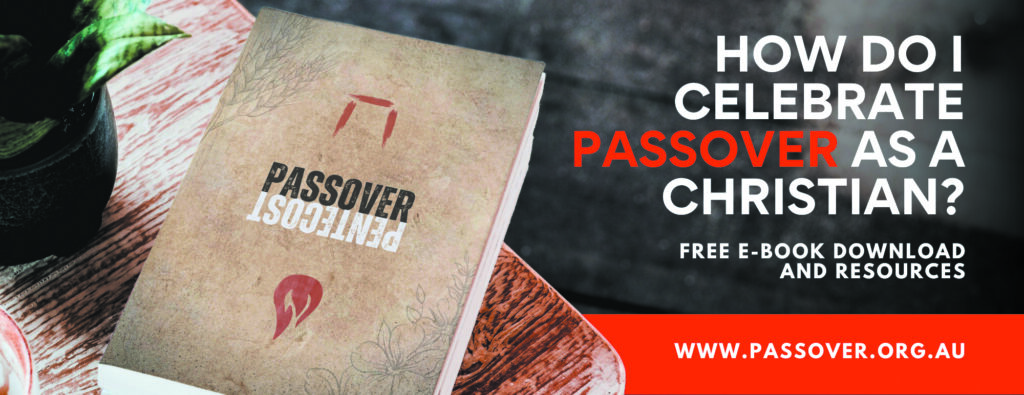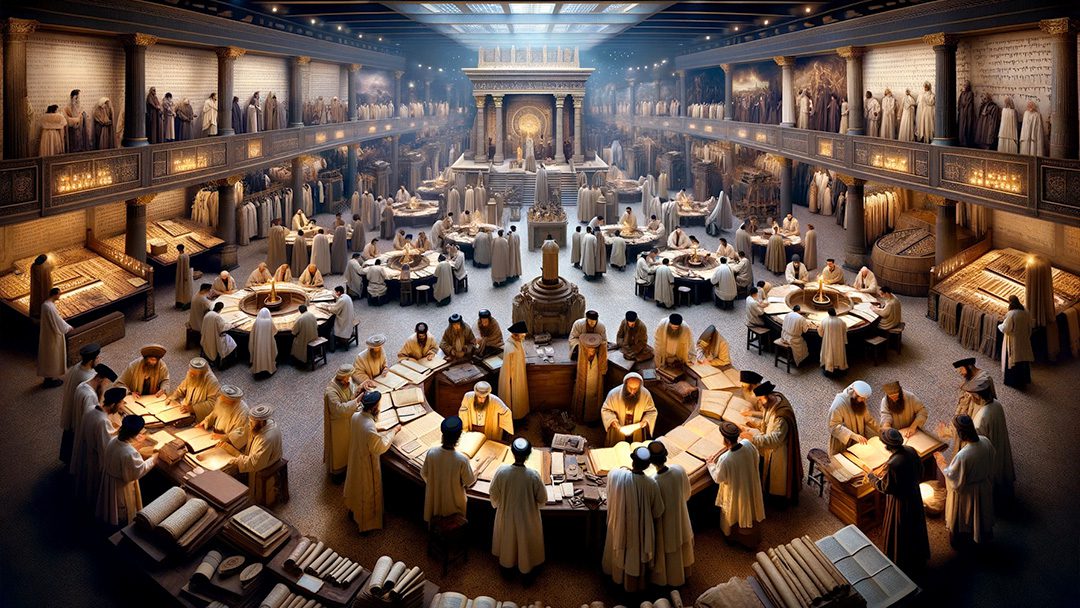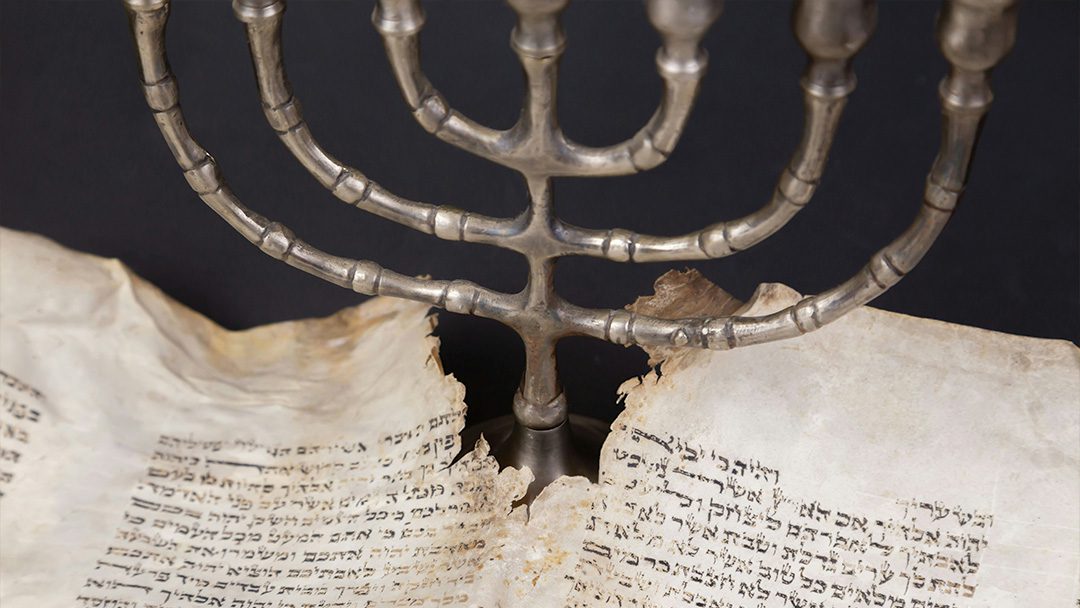Have you ever asked the question, “Why do I believe what I believe?” This is not a new question and is often asked to help define the relevancy and purpose of one’s faith. In his letter to Philippians 2:12, Paul says, “Therefore, my beloved, as you have always obeyed, so now, not only as in my presence but much more in my absence, work out your own salvation with fear and trembling”. In other words, not only consider the relevance of your faith but work out your faith carefully, cautiously, with disciplined focus and in a calculated manner.
This careful approach to working out one’s salvation and faith was modelled by all of the apostles, and especially Paul, who spent around six years after receiving the revelation of Yeshua as Messiah to ensure that ‘His gospel’ was in line with the Torah. In the years to come, the God-fearing Gentiles would wrestle with similar questions around the applicability of the Torah to them and how it applied to them.
The destruction of the Temple in 70 AD was a significant turning point for both Jewish and Gentile believers. This event forced a profound transformation in Jewish theology and community life. By around 90 AD, Jewish followers of Yeshua and God-fearing Gentiles were expelled from synagogue worship, intensifying the separation between them.
This widening divide, which has been documented throughout the church’s history, ultimately crystallised into two distinct religious traditions: Christianity, which became primarily Gentile, and Judaism. Surely, this isn’t what Paul meant when He said, “Jew and Gentile, ONE in Messiah”.
Our early church fathers, in their desire to separate from Judaism, were firm in their convictions: Israel had indeed been superseded; the Old Covenant had been rendered obsolete; the Levitical priesthood had been abolished forever; the Temple had been destroyed, and with it, the sacrificial system had come to an end.
Our Church Forefathers Were Wrong
Let me be clear. I believe wholeheartedly in the atoning work of Yeshua and his blood, surpassing sacrifices of goats and bulls by enabling permanent atonement for sin, dealing with death permanently and the greatest gift and reward, our resurrection. His death and resurrection reconcile us with the heavenly Tabernacle, not the earthly one. The distinction is articulated in Hebrews 9:24, which states, “For Messiah has not entered the Holy places made with hands, which are copies of the true, but into heaven itself, now to appear in the presence of God for us.”
Despite this Heavenly atonement, the earthly covenants remain intact until the prophesied New Heavens and New Earth emerge (Revelation 21:1). God’s faithfulness to His covenants is affirmed in Jeremiah 33:20-21, “Thus says the Lord: “If you can break My covenant with the day and My covenant with the night so that there will not be day and night in their season, then My covenant may also be broken with David, My servant…” This signifies that as long as day and night continue, God’s covenants stand firm. Even though the covenant with David is mentioned, it’s the same principle: if God can break His covenant with one, He can break His covenant with all.
God’s covenant-keeping nature is reaffirmed in Malachi 3:6, “For I am the Lord, I do not change; therefore you are not consumed, O sons of Jacob.” This principle, along with Hebrews 13:8, “Yeshua is the same yesterday, today, and forever,” establishes the consistency and continuity of God’s character and His dealings with humanity.
In the New Testament, however, for those who have read Paul’s epistles, it would seem that he speaks out against the Torah. Let’s examine this closely, though. 2 Peter 3:16-17 offers a compelling exegesis on Paul’s letters, cautioning against their misinterpretation: “He (Paul) writes the same way in all his letters, speaking in them of these matters. His letters contain some things that are hard to understand, which ignorant and unstable (the Greek word here is for unlearned) people distort, as they do the other Scriptures, to their own destruction.”
Peter warns that Paul’s complex theological arguments, when twisted by those lacking Torah understanding (being the object of learning), lead to destructive heresies (false teaching/false prophecy), emphasising the necessity of grounding interpretations in the foundational knowledge of the Torah.
Quite literally and plainly, Peter warns us that reading Paul’s epistles out of context will result in destructive heresies separated from Torah living.
In Acts 15, the Jerusalem Council’s decision to impose only four abstention commands on Gentile believers (from idolatry, sexual immorality, from things strangled, and from blood) aimed at facilitating fellowship between Jewish and God-fearing Gentile believers. This decision, grounded in Leviticus 17-19, was not an end but a starting point for Gentiles, who were expected to grow in their understanding of the Torah as they worshipped alongside Jews. The concluding assurance from James, “For Moses has been preached in every city from the earliest times and is read in the synagogues on every Sabbath” (Acts 15:21), indicates an expectation of ongoing Torah learning, and this is understandable, as we know they learnt in the outer courts (for gentiles) on the Sabbath and in homes (house to house).
In the book of Galatians, Paul addresses Gentiles to remain as Gentiles. To become a Jew via circumcision would then mean one would be not just ‘invited’ but ‘obligated’ to fulfil every aspect of the Torah as it applies to the Jewish people. Paul continually reminds them it’s not your ‘works’ that grant you this special resurrection status, but your ‘faith’. While God’s Torah is incumbent and an obligation for the Jewish people regardless of faith in the Messiah, Gentiles are invited to learn, participate and grow in the Kingdom’s commands. Not something forced, but a natural growth journey of discipleship.
Paul’s defence against accusations of lawbreaking (breaking the Torah) showcases his adherence to the Torah. In Acts 21:24, Paul is advised to participate in purification rites to demonstrate his observance of the law, purchasing both sacrifices for himself and others, adhering to the full Nazarite standard in Leviticus, disproving allegations of teaching against it. This action underlines Paul’s respect for the Torah, contradicting claims of its nullification in his ministry. Furthermore, he defended this position five other times, with both religious leaders and Roman leadership.
I began this article by addressing a question that often arises, “why do I believe what I believe?” This is one of the best questions you can ever ask yourself because, at its core, it is the desire to settle in your own heart whether something is based on the scripture/word of God or whether it is a man-made tradition. You can be sure of one thing: when your faith is based on the whole Bible, it will be solid.
There is no room in our faith for antisemitism or replacement theology, and we must re-evaluate the constant role of the Torah in our lives. Yeshua (Jesus) did not come to abolish the Torah; Paul did not advocate for its disregard. The Apostles stood by it, as did the disciples of the first century. Rather than zeroing in on how our beliefs fit within our personal narratives, a more vital inquiry emerges: “How can I align my life today with God’s commands and His Kingdom?”
Matthew 6:33 (ESV) says, “But seek first his kingdom and his righteousness, and all these things will be given to you as well.”
If you’re interested in exploring what Jew and Gentile ONE in Messiah looks like, then I invite you to embark on a journey to ‘put under the spotlight’ your faith through the lens of the Torah—perhaps a term new to you—I encourage you to join us in a deep dive into church history, tracing our roots back to the era of Yeshua and His disciples. Together, we’ll investigate the historical divergences that have shaped our beliefs and learn how to fortify our faith so that we are both Jew and Gentile ONE in Messiah.
If you would like to begin this journey and explore answers to some of the pressing questions surrounding our faith’s foundation, I invite you to visit www.passover.org.au. Here, you’ll find a comprehensive 9-part course designed to guide you through these complex topics and, of course, welcome you to the delightful celebration of Passover.













0 Comments